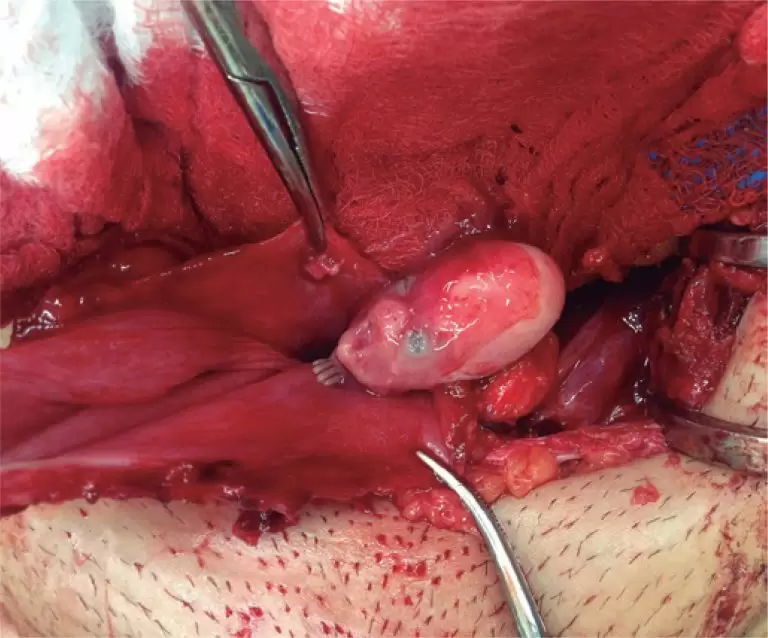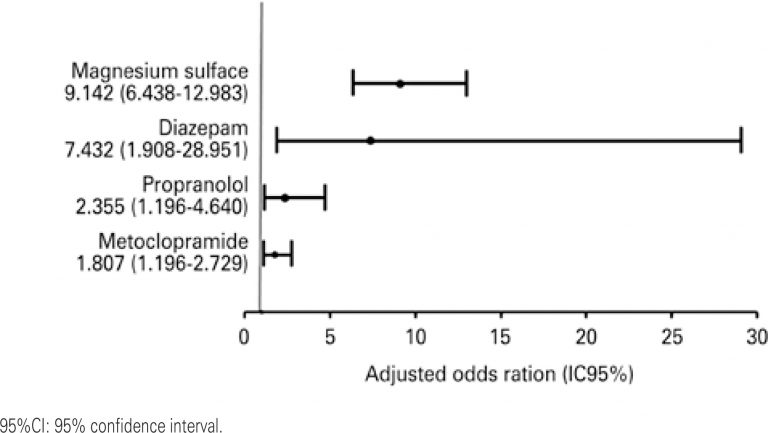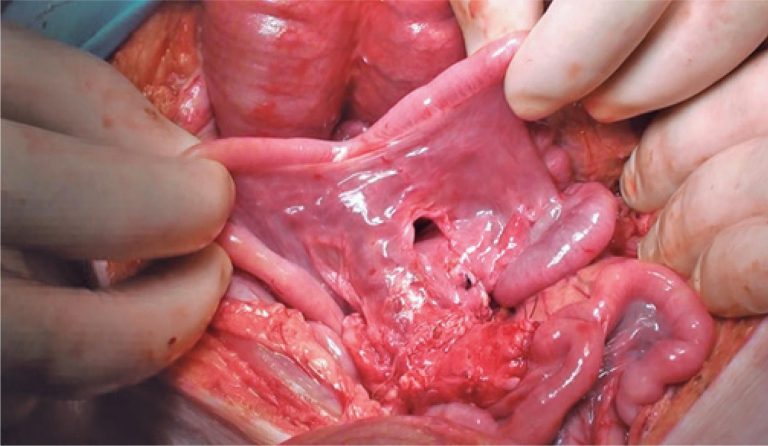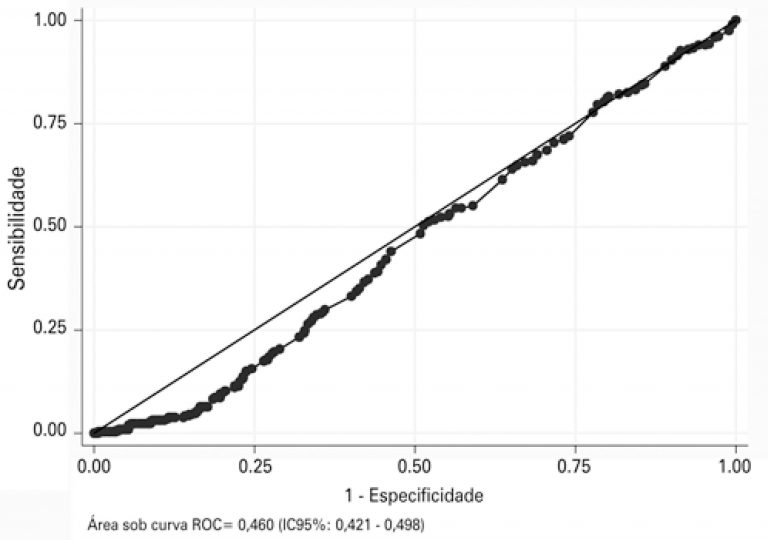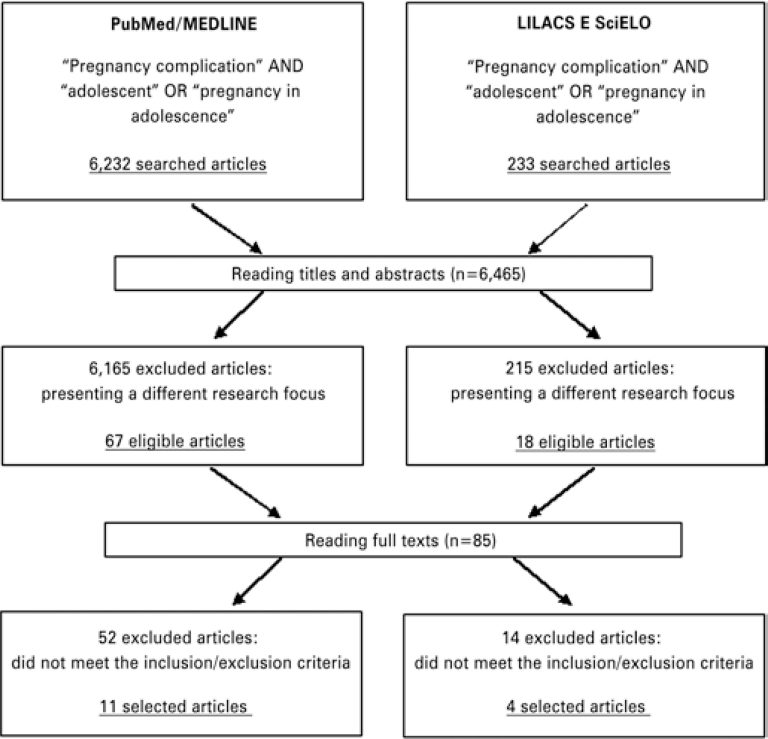13/Aug/2019
Consensus on the investigation of thrombophilia in women and clinical management
DOI: 10.31744/einstein_journal/2019AE4510
ABSTRACT Objective To standardize the investigation and clinical management of women with laboratory and/or clinical abnormalities suggestive of thrombophilia, in order to optimize antithrombotic approach and indication of laboratory tests. Methodology A discussion was carried out among 107 physicians (gynecologists/obstetricians, hematologists and vascular surgeons) present at a forum held at the Hospital Israelita Albert Einstein, in São Paulo (SP), Brazil. As a minimum criterion, 80% agreement was established in the voting to each recommendation of conduct in the final document. […]
Keywords: Abortion, habitual; Antiphospholipid syndrome; Contraception; Pregnancy; Pregnancy complications; Thrombophilia; Venous thromboembolism; Venous thrombosis
19/Jun/2019
Live fetus inside the urinary bladder: a case report
DOI: 10.31744/einstein_journal/2019RC4570
ABSTRACT Vesicouterine fistula is a rare condition. Its incidence, however, has been increasing due to the higher incidence of cesarean sections. The presence of a live fetus inside the bladder who passed through a vesicouterine fistula is an extremely rare situation. We report a case of woman who underwent two previous cesarean sections, was referred to a hospital due to mild pelvic pain and genital bleeding. At the moment, physical examination was normal. Ultrasound scan revealed a gestational sac inserted […]
Keywords: Abortion; Fetus; Obstetrics; Pregnancy; Pregnancy complications; Urinary fistula
22/May/2019
Drug interactions in maternal intensive care: prevalence, risk factors, and potential risk medications
DOI: 10.31744/einstein_journal/2019AO4521
ABSTRACT Objective: To characterize severe potential drug interactions in maternal intensive care, and to determine their frequency, risk factors and potential risk medications. Methods: An observational and longitudinal study conducted between December 2014 and December 2015 in a maternal intensive care unit. Clinical data were collected and severe potential drug interactions were identified on pregnant inpatients. The drug interactions were classified by type, prevalence and exposure rate. A multivariate logistic regression model was used to identify the severe potential drug […]
Keywords: Drug interactions; Drug therapy; Intensive care units; Maternal health; Pregnancy
10/Sep/2018
Sexual behaviors: study in the youth
DOI: 10.1590/S1679-45082018AO4265
ABSTRACT Objective: To characterize sexual behaviors in a sample of adolescents and youth. Methods: An analytical descriptive study using a questionnaire about sexual behaviors, adapted from the World Health Organization. It was distributed to students from a Portuguese city aged 14-24 years, during two months. Two age groups were defined: G1 – students aged 14-19 years; G2 – aged 20-24 years. Results: The sample included 2,369 students, 61% females and 70% in G1. The mean age of first sexual intercourse […]
Keywords: Adolescent; Contraception; Pregnancy; Sexual behavior; Sexually transmitted diseases
08/Dec/2017
Description and evaluation of experimental models for uterine transplantation in pigs
DOI: 10.1590/S1679-45082017AO4066
ABSTRACT Objective: To evaluate the technique of uterine transplantation and the use of drugs used in the process of immunosuppression. Methods: We included 12 sows, and immunosuppression was performed with minimal doses of cyclosporine, and cross-match was done to exclude the possibility of blood incompatibility. Hysterectomy was performed in the donor under general anesthesia, with the removal of the aorta and inferior vena cava in monobloc, and anastomosis of these vessels was made in the recipient. Results: Six experiments were […]
Keywords: Cyclosporine; Immunosuppressive agents; Infertility; Models, animal; Pregnancy; Swine; Transplantation; Uterus/transplantation
01/Jul/2017
Progesterone level on the day of hCG administration in relation to the pregnancy rates of patients undergoing assisted reproduction techniques
einstein (São Paulo). 01/Jul/2017;15(3):273-7.
View Article01/Jul/2017
Progesterone level on the day of hCG administration in relation to the pregnancy rates of patients undergoing assisted reproduction techniques
DOI: 10.1590/S1679-45082017AO4091
ABSTRACT Objective To evaluate the predictive capacity for pregnancy of the progesterone level on the day of administering human chorionic gonadotropin, in women submitted to assisted reproductive techniques. Methods An observational study with 914 women submitted to assisted reproductive techniques from August 2014 to June 2016. Results Total pregnancy rate was 34.58%; in that, the pregnancy rate in women 38 years was, respectively, 42.3%, 38.7% and 16.1% (p
Keywords: Chorionic gonadotropin; Pregnancy; Progesterone; Reproductive techniques, assisted
01/Oct/2016
Effect of maternal exercises on biophysical fetal and maternal parameters: a transversal study
DOI: 10.1590/S1679-45082016AO3758
ABSTRACT Objective To evaluate the acute effects of maternal and fetal hemodynamic responses in pregnant women submitted to fetal Doppler and an aerobic physical exercise test according to the degree of effort during the activity and the impact on the well-being. Methods Transversal study with low risk pregnant women, obtained by convenience sample with gestational age between 26 to 34 weeks. The participants carry out a progressive exercise test. Results After the exercise session, reduced resistance (p=0.02) and pulsatility indices […]
Keywords: Exercise; Exercise test; Fetal monitoring; Fetus; Pregnancy
01/Apr/2016
Impact of dental orientation given to mothers during pregnancy on oral health of their children
DOI: 10.1590/S1679-45082016AO3616
ABSTRACT Objective To analyze the perception of mothers about oral health of their children, as well as to check the influence of demographic variables, perception and preventive practice in oral health of mothers regarding guidance received during pregnancy. Methods Quantitative and cross-sectional field study, with a non-probability sample formed by all mothers who attended the primary healthcare unit of Ijuí (RS), Brazil, from January to July 2014, comprising a sample of 79 women. Self-applied questionnaires were given to these mothers. […]
Keywords: Oral health; Oral hygiene; Perception; Pregnancy
09/Jun/2015
Complications in adolescent pregnancy: systematic review of the literature
DOI: 10.1590/S1679-45082015RW3127
Sexual activity during adolescence can lead to unwanted pregnancy, which in turn can result in serious maternal and fetal complications. The present study aimed to evaluate the complications related to adolescent pregnancy, through a systematic review using the Medical Subject Headings: “pregnancy complication” AND “adolescent” OR “pregnancy in adolescence”. Only full original articles in English or Portuguese with a clearly described methodology, were included. No qualitative studies, reviews or meta-analyses, editorials, case series, or case reports were included. The sample […]
Keywords: Adolescent; Pregnancy; Pregnancy complications; Pregnancy in adolescence
01/Jan/2015
Perinatal outcomes in women over 40 years of age compared to those of other gestations
DOI: 10.1590/S1679-45082015AO3204
Objective To clarify if older pregnant women were more likely to have adverse perinatal outcomes when compared to women at an ideal age to have a child. Methods The groups were divided according to age groups: under 20 years, ≥20 to
Keywords: Age effect; Cesarean section; Infant, premature; Maternal age; Perinatal care; Pregnancy


